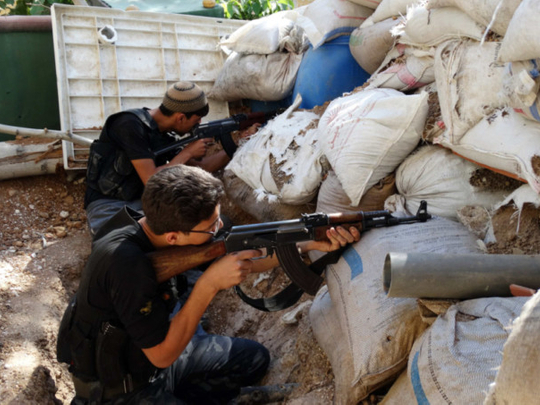
Dubai: Evidence strongly suggests Syrian government forces were responsible for a poison gas attack that killed more than 1,400 people, Human Rights Watch said on Tuesday, contradicting repeated denials by Syrian President Bashar Al Assad.
The US-based rights group, in a report issued in New York, said it had reached its conclusion after analysing witness accounts, information of the likely source of the attacks, remnants of the weapons used and medical records of victims.
“The evidence concerning the type of rockets and launchers used in these attacks strongly suggests that these are weapon systems known and documented to be only in the possession of, and used by, Syrian government armed forces,” Human Rights Watch said.
“Human Rights Watch and arms experts monitoring the use of weaponry in Syria have not documented Syrian opposition forces to be in possession of the 140mm and 330mm rockets used in the attack, or their associated launchers.” The chemical weapons attack near Damascus on August 21 killed more than 1,400 people. Syria has been torn by a bitter civil conflict between Al Assad’s troops and rebel forces who want to end the Al Assad family’s four-decade rule.
The Human Rights Watch report comes as the United States pushes for congressional approval for military strikes on Syria and as US President Barack Obama explores a Russian proposal to put Syria’s chemical weapons under international control.
Obama has argued that Al Assad must be punished for the use of poison gas on rebel areas, but his plan faces significant resistance from US lawmakers who are worried that a strike could draw the US into the conflict and spark wider conflicts in the Middle East.
Al Assad, in an interview on the US CBS television network, denied there was any evidence to link his government to the gas attack and warned the United States to expect reprisals for any military strike on his country.
Human Rights Watch said it also investigated suggestions the chemical attacks came from opposition forces.
“Human Rights Watch has investigated alternative claims that opposition forces themselves were responsible for the August 21 attacks, and has found such claims lacking in credibility and inconsistent with the evidence found at the scene.”












